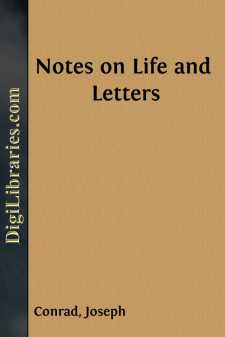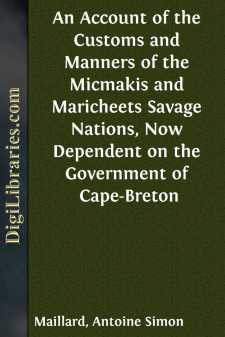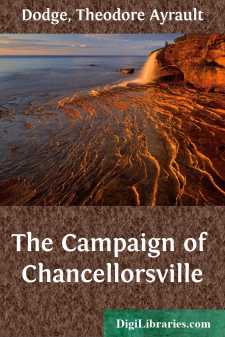Non-Classifiable
- Non-Classifiable 1768
Non-Classifiable Books
Sort by:
by:
Kate Sanborn
CHAPTER I My Early Days—Odd Characters in our Village—Distinguished Visitors to Dartmouth—Two Story Tellers of Hanover—A "Beacon Light" and a Master of Synonyms—A Day with Bryant in his Country Home—A Wedding Trip to the White Mountains in 1826 in "A One Hoss Shay"—A Great Career which Began in a Country Store. I make no excuse for publishing these memories. Realizing that...
more...
by:
Joseph Conrad
I. “I have not read this author’s books, and if I have read them I have forgotten what they were about.” These words are reported as having been uttered in our midst not a hundred years ago, publicly, from the seat of justice, by a civic magistrate. The words of our municipal rulers have a solemnity and importance far above the words of other mortals, because our municipal rulers more than any...
more...
by:
Robert Lansing
CHAPTER I REASONS FOR WRITING A PERSONAL NARRATIVE "While we were still in Paris, I felt, and have felt increasingly ever since, that you accepted my guidance and direction on questions with regard to which I had to instruct you only with increasing reluctanceвЦ. "вЦ I must say that it would relieve me of embarrassment, Mr. Secretary, the embarrassment of feeling your...
more...
Chapter I: "OUT IN ARIZONA, WHERE THE BAD MEN ARE" "So you think you'd like to work in the Park Office at Grand Canyon?" "Sure!" "Where is Grand Canyon?" I asked as an afterthought. I knew just that little about the most spectacular chasm in the world, when I applied for an appointment there as a Government worker. Our train pulled into the rustic station in the wee...
more...
ON THE NATURAL HISTORY OF THE MAN-LIKE APES Ancient traditions, when tested by the severe processes of modern investigation, commonly enough fade away into mere dreams: but it is singular how often the dream turns out to have been a half-waking one, presaging a reality. Ovid foreshadowed the discoveries of the geologist: the Atlantis was an imagination, but Columbus found a western world: and though...
more...
INTRODUCTION The important documents from Norse sources that may be classed as “Original Narratives of Early American History” are the Icelandic sagas (prose narratives) that tell of the voyages of Northmen to Vinland. There are two sagas that deal mainly with these voyages, while in other Icelandic sagas and annals there are a number of references to Vinland and adjacent regions. These two sagas...
more...
A LETTER, &c. Micmaki-Country, March 27, 1755. SIR, I should long before now have satisfied you in those points of curiosity you expressed, concerning the savages amongst whom I have so long resided, if I could have found leisure for it. Literally true it is, that I have no spare time here, unless just in the evening, and that not always. This was my case too in Louisbourg; and I do not doubt but...
more...
I. INTRODUCTION. It must seem to the casual reader of the history of the war of 1861-65, that enough has already been written upon the campaign of Chancellorsville. And there are numerous brilliant essays, in the histories now before the public, which give a coup-d'oeil more or less accurate of this ten-days' passage of arms. But none of these spread before the reader facts sufficiently...
more...
by:
Samuel Butler
INTRODUCTION THE accompanying Atlas has been included in this series for the greater convenience of the reader of “Grote's Greece” and other works that ask a continual reference to maps of ancient and classical geography. The disadvantage of having to turn perpetually from the text of a volume to a map at its end, or a few pages away, is often enough to prevent the effective use of the one in...
more...
by:
John F. Runciman
CHAPTER I We once had a glorious school of composers. It departed, with no sunset splendour on it, nor even the comfortable ripe tints of autumn. The sun of the young morning shone on its close; the dews of dawn gleam for ever on the last music; the freshness and purity of the air of early morning linger about it. It closed with Purcell, and it is no hyperbole to say the note that distinguishes...
more...











